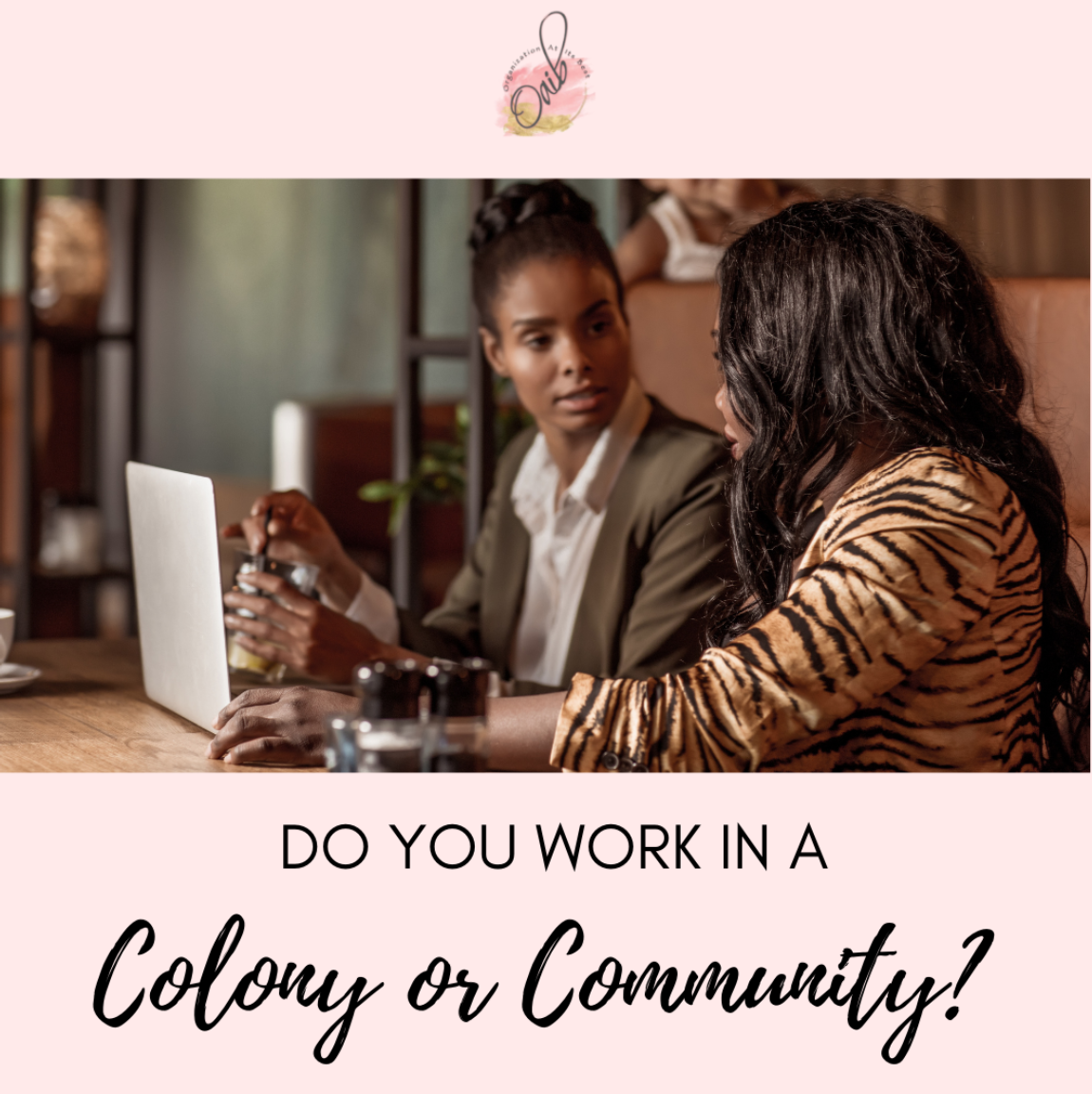
MAY 3, 2022
Do You Work in a Colony or a Community? 
Workplace culture makes all the difference, and there are two types: colonies and communities.
A colony is, by definition, a country or area under full or partial control of another country.
During colonization, one group comes in and takes the land, and sets up their own establishments and economy. Choices benefit the invading party at the expense of others not in the “in-group.” Colonization is, at its core, a form of racism.
If your organization functions as a colony, it probably means People of Color are in the “out-group” and don’t share in the benefits of decisions to the same degree as the White leadership.
The result is stress, pressure, code-switching, suppressing one’s culture, and burnout. None of this is good for retention, creativity, innovation, productivity, or business.
A community, on the other hand, is a group of people living in the same place, sharing common goals and feelings of fellowship. In a community, people coexist and operate for each other’s mutual benefit.
While there are power structures and reporting relationships, one group isn’t the overwhelming beneficiary of decisions.
In a “community” workplace culture, there is diversity, equity, inclusion, and belonging, which creates psychological safety so people can bring their authentic selves, and support each other, at work.
“Colonized” employees can’t bring their best, most authentic selves to work. The pressure to navigate, conform, and submit suppresses creativity and productivity.
If the #1 reason people quit their jobs is because of a bad relationship with their manager, you can imagine how many workers come and go in a colonial culture.
But, if employers approach employees with a community and partnership mindset, then people thrive and can bring their best ideas, energy, and passion to work.
Employees in a community-minded organization are able to reach their full potential, which means the organization can as well.
People come to work with authenticity, ready to contribute on the highest level.
Yes, if they are willing to invest in people.
Creating a community of thriving employees is going to take some time and resources, but the payoff can be significant.
Investing in people will look different for each organization because equality and equity are not the same things.
How you make your organization a great place for people to show up as their authentic selves is up to you, but you can start by asking.
We’re happy to discuss how you can get started, just contact us.Employees are affected
Can an employer that’s been running a colony create a community?
Organization At Its Best Founder and Chief Executive Officer, Tawana Bhagwat, has more than twenty-five years of experience directing Human Resource administration, change management, learning and development, facilitation, DEIB, and executive coaching.

